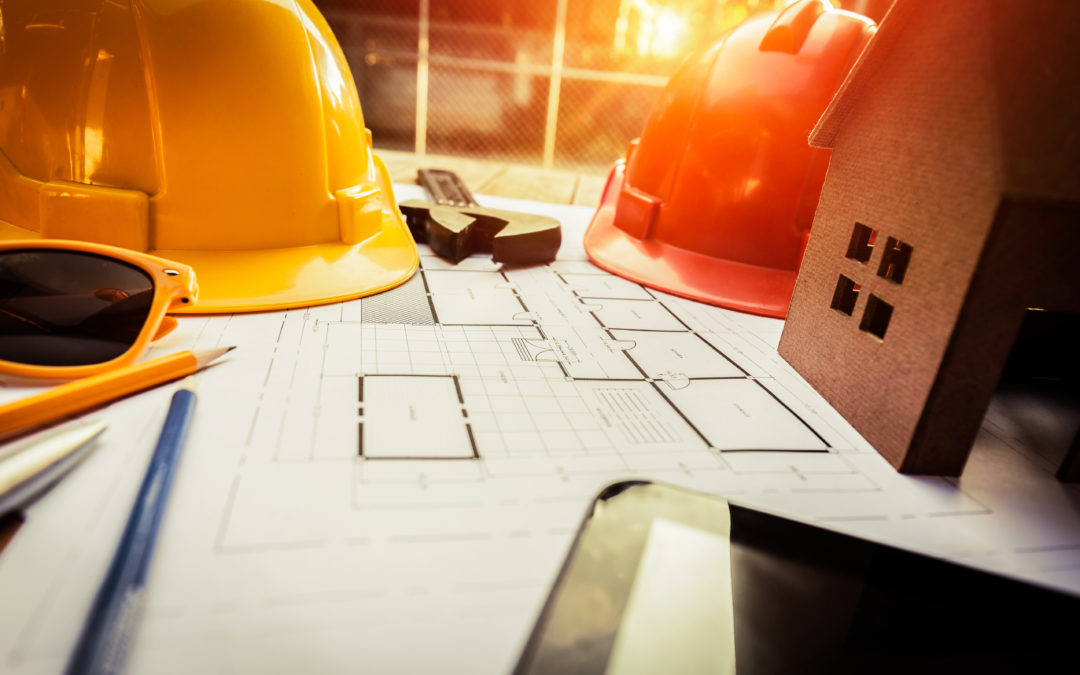This is it. You’re finally ready to build your dream home! Or, well, find someone to help you do it.
Undoubtedly, your dream home can’t come to fruition without hiring a reliable contractor. That’s why it’s so important to find the right one and to develop a good professional relationship with them throughout your project.
In this blog post, you’ll learn 7 valuable tips to help you hire & work with the right contractor for your house project.

1. Research and do your homework.
When hiring a contractor, Remember that they hold a significant level of responsibility for your construction project. For example, they’re responsible for finding the right people to build your home, the right materials, and getting the right permits approved, among other things.
As a homeowner, it’s your responsibility to research your prospective contractors until you narrow down your options and find the right one for the job. Here are some things you can do:
—– Get recommendations from trusted friends & family members: Don’t just get their names and contact info though! Ask about their work process, ethics, pricing, communication style, etc.
—– Once you’ve gathered a list of recommendations, set up a meeting or interview: Make sure to pay attention to how they present their services, how they speak with you (communication is important in a home construction project), and don’t be afraid to ask them questions.
—– Check their references: It always pays to double-check, so look at their other references and, if possible, conduct an interview with those references.
—– Visit their past & current projects: Checking their end results or their current works in progress can give a good idea of how they can accomplish your home project.
2. Verify contractor’s license and insurance.
Before hiring a contractor, it’s important to verify their license and insurance first. Just because someone says they’re a contractor, doesn’t mean they really are. Here are steps you can take:
—– Visit the Better Business Bureau website and see if they are a BBB accredited business.
—– Ask your contractor for their trade license number and other documented proof
—– Go to your state’s licensing board website (For example, North Carolina’s Secretary of State Business Entity and South Carolina’s Secretary of State Business Entity) and verify the license number, as well as their license classification (make sure they are qualified for residential projects.)
3. When hiring a contractor, be clear about your plans & expectations.

As the homeowner, you’re going to be living in the house once it’s finished. So it’s important to be very clear about your plans, visions, and expectations from the very beginning.
As much as possible, provide specific examples of things such as materials you want for your home, pictures or sketches of the end result, colors, etc. This will help your potential contractor determine a price for your project. More importantly, you’ll both have tangible and clear references to refer to as your project starts to make progress, clearing up confusion along the way.
4. Get & compare bids from your prospective contractors
After presenting your plans & visions for your home, your contractors will now place bids on your project. Each contractor should be able to give you a breakdown of costs & expenses for things like materials, labor, profit margins, etc. If there’s a significant difference between their bids, ask them to justify their proposals.
5. Get EVERYTHING in writing.

Creating a clear and detailed contract is a crucial step, not just in hiring a contractor, but in establishing a good working relationship, as well as a successful project. Contracts protect both you and the contractor by including terms and clauses for items like the project’s schedule, duties, and responsibilities, materials to be used, etc. Additionally, document all the adjustments and changes made along the way.
While you can draft a contract yourself, it’s important to get a reliable attorney to review the document to make sure it’s legally binding, includes the right clauses and terms for your protection, and mutually benefits both parties.
6. Don’t let prices guide your decision.
When it comes to bidding, we often have the tendency to favor the cheapest bid. However, that’s not always the smartest choice. In some cases, cheap offers may mean you’re also compromising quality— with both the end result and the people with whom you’re going to work.
In the end, choose the contractor that you feel the most comfortable working with. Remember, your house project relies on the contractor’s good communication skills, work ethics, and professionalism. So it’s imperative that you hire the one that is able to show how reliable and dependable they are. It will save a lot of headaches (and even money) along the road.
7. Frequently visit and monitor the job site.

This is technically the contractor’s job, as well. But who’s keeping an eye on the contractor? It never hurts to inspect what you expect.
As much as possible, try to be hands-on and involved in the project as well. This doesn’t mean you have to join in the construction work; just being present and watching the progress helps to keep the ball rolling. Don’t be afraid to ask questions, inquire about the progress, and check to see if your vision is being followed.
Remember, the creation of your dream home depends a lot on your contractor, so take your time in finding the right one.
At SWC Law, we can help you draft & review your contract, making sure that it protects and benefits both parties. We can also help you resolve construction disputes through reliable legal advice and assistance.
Schedule a consultation now by filling out our form or calling 704-266-0792.


Recent Comments